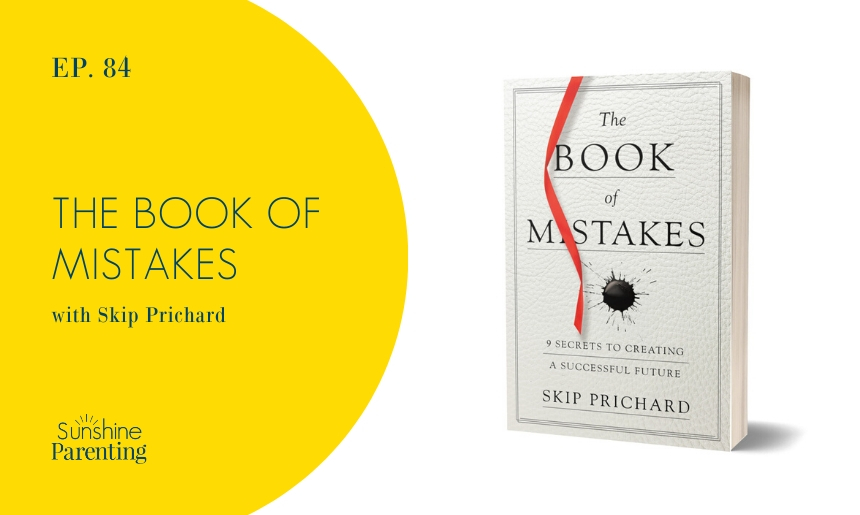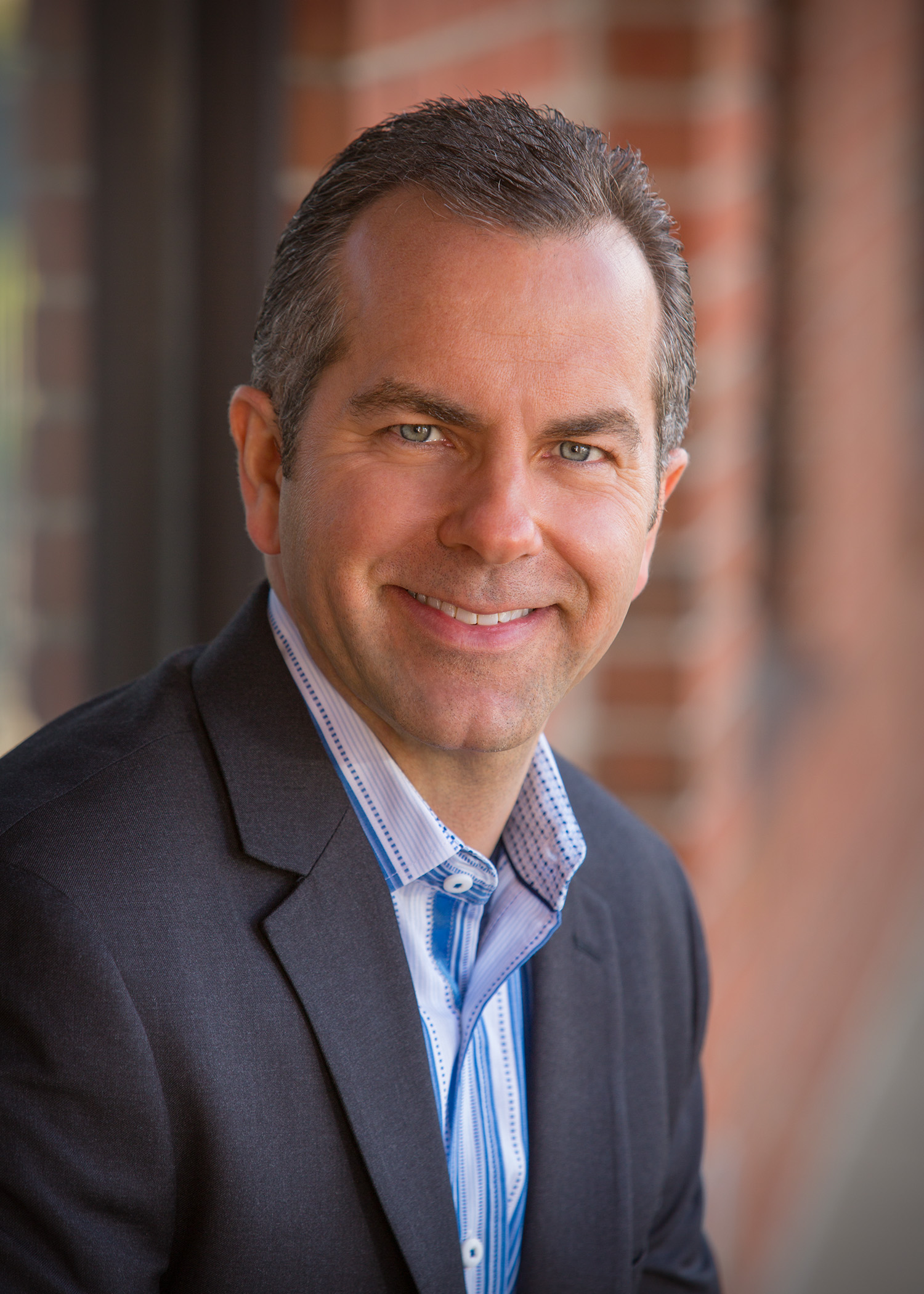
In this episode, I interviewed Skip Prichard for my podcast, and I’m feeling so inspired! The Book of Mistakes would be an awesome audiobook to listen to with your teenage kids or read-aloud book for camp!
The Book of Mistakes: 9 Secrets to Creating a Successful Future is the project of Skip Prichard, a CEO who understands that the only motivation that works is self-motivation. Culled from research and interviews with news and sports legends, CEOs, and bestselling authors, The Book of Mistakes is the inspiring business fable of a young professional named David. Two years into the workforce, David has already become embittered with lost confidence, misdirection, and growing apathy over a list of all-too-familiar stresses. That is, until he’s taken on a journey from “struggling young professional” to “promising entrepreneur, public speaker, and changemaker” by nine sage teachers readying him with the mistakes that lead to failure. These nine mistakes, commonly made but rarely addressed, are:
- Working on someone else’s dream.
- Allowing someone else to define your value.
- Accepting excuses.
- Surrounding yourself with the wrong people.
- Staying in your comfort zone.
- Allowing temporary setbacks to become personal failures.
- Blending in instead of standing out.
- Thinking there is a fixed and limited amount of success available.
- Believing you have all the time in the world.
BIG IDEAS
- Stories are a great way to teach kids life lessons. Research shows that we remember things from stories significantly more.
- It’s important to think about your purpose in life.
- It’s important for parents and kids to be working on their own separate dreams.
- Thinking about who you are becoming, and who you are developing, will make a major difference in helping you to become successful.
QUOTES
Skip: “The way the book actually started, the thinking behind it was way back in my childhood when my parents started taking in people, people from all walks of life but mostly they were people who were troubled, they were addicted, they were abused. I began this lifelong study of people and what makes them tick. And how do you become successful, what success really is.”
Skip: “Sometimes people seem like they’ve got it all together but then you peel it back and see that they’ve gone through some tough times. It is really illuminating for us to look at the struggles people go through. We can learn lessons from people, not just from their successes, but from their struggles, as well.”
Audrey: “I loved the format of your book — a fable; It tells a story that’s very relatable, about a real person that struggles with many of the same things that many of us do. And then these lessons learned from these different mentors or guides along the way.”
Audrey: “Who do you think this book is best for?”
Skip: “It’s resonating most with people in transition, not necessarily an age group but people who may be going into retirement or they’re in mid-life crisis mode. Or they’re starting a new job or business. Or they’re starting life. We’re seeing a lot of parents giving it to new graduates so that they can embrace these ideas early on. I wish I would have had this book when I graduated.”
Audrey: “Especially with teenagers and college kids, having a resource like this where it’s not you telling them what to do, but it’s sharing ideas and resources that resonate, that they can relate to, is such a great way to teach kids!”
Skip: “The research shows that we remember things by stories significantly more…I wanted to write it so that it was entertaining and you’d want to know what happened in the story. And the lessons were kind of in the background, rather than let me just preach to you these lessons.”
Skip: “We find ourselves in life drifting along many times and we get to a point where we say, wait…why am I here? …We shouldn’t just find ourselves drifting. The most successful people don’t make this mistake. They don’t find themselves swept up in someone else’s dream, swept down the river and wonder how they got there. They are very deliberate, saying: What is my dream, my purpose? What gives me energy? Why am I uniquely put on this planet? What is my God-given purpose to really do something different in this world that is unique to my giftedness, my skills, my attitude, the people around me? What am I here for?”
Skip: “The most successful people are thinking about their purpose, their compass, the way they set their sails. The winds, the storms, hit all of us but we can choose how we want to set the sail–and that sail should be set according to that purpose that we have for our life.”
Skip: “Working on someone else’s dream is very dangerous; to find that you have only become part of somebody else’s vision and that you haven’t really set your own.”
Audrey: “As parents, we want great things for our kids but it can be very hard for us to separate our own dreams from theirs. The modeling of what we do is the most important thing we can do for our kids because if they see us working on our own dreams, they will then learn how to do it. It’s really important for both parents and kids to be working on their own separate dreams.”
Skip: “So often we look at life through our own lens and, however well-intentioned we are, many of us impose our lens on the child. It becomes important to say, ‘instead of imposing my lens, I want to share my values, my principles, how I approach life’, and model that. ‘But the methodologies, the ways you do it, is going to be uniquely yours and I want to help you awaken that dream within yourself and think about your own purpose because your lens is different from mine, and that’s a good thing.’ I want to encourage that.”
Audrey: “As parents, we need to be careful (not to impose our dreams on our children) because our kids do look to us. They want us to be happy about what they are doing and be proud of them. You can go through your whole life pursuing someone else’s dream.”
Skip: “When you see people broken, I think it gives you a deeper understanding. If you treat everyone like they’re broken and hurting, you’re probably right more of the time than you think. And so it gives you a bit of empathy because we are all experiencing different challenges and that’s what life’s all about. But the question is, how do you overcome them?”

Audrey: “Mistake number three is accepting excuses. Whether it’s little things or big things, I think that’s just a human tendency.”
Skip: “Excuses are dangerous! We can have an excuse in our head and some people are so good at it. The key to success is overcoming those negative voices. Stop this idea of making excuses. Use those excuses as rocket fuel for success.”
Skip: “The most important microphone in the world is the one inside your mind. Guard that microphone and reprogram it so you hear a voice saying ‘You can do this!’.”
A quote from Skip’s book (Chapter 7): “Authenticity is the result of standing out. If you are true to your design you naturally stand out from others because no one else is quite like you. Authenticity is the beautiful expression of your unique giftedness.”
To take Skip’s quiz, go to www.thebookofmistakes.com
Audrey’s quiz results:
You’re the trainer in THE BOOK OF MISTAKES.
Your strength is in your personal accountability. You are someone who can get things done. When you give your word, it means something. You’re known for getting things done and you don’t make excuses. What others think of as excuses, you see as opportunities.
You are conscious of your self-talk and work diligently to keep it positive and encouraging. This may require effort at times, but the discipline is worthwhile and shows up in results. You are goal-oriented, determined, and focused.
Remember to be patient with those who are not as focused or disciplined as you.
Your motto: Energy is best spent achieving goals, not creating excuses.
The Book of Mistakes: 9 Secrets to Creating a Successful Future
 Skip Prichard is an accomplished CEO who has run global businesses ranging from the startup phase to mature businesses with over $1.5 Billion in revenue.
Skip Prichard is an accomplished CEO who has run global businesses ranging from the startup phase to mature businesses with over $1.5 Billion in revenue.
He has spent decades studying leadership psychology and interviewing over 1,000 of the most successful people in the world. His extensive library is packed with personal development books from today to dating back hundreds of years.
He has met or interviewed countless leaders ranging from Keith Richards of the Rolling Stones to Zappos CEO Tony Hsieh to golf champion Annika Sorenstam.
Harvard Business Review recently labeled Mr. Prichard as a rare social CEO and a “relentless giver.” Inc. Magazine lists him as a Top 100 Leadership Speaker. His Leadership Insights blog has won numerous awards.
You may have read his articles on numerous sites or seen him featured in the news. His views have been featured in print and broadcast media including the BBC, The New York Times, CNN, NPR, The Daily Beast, Harvard Business Review, Information Today, The Bookseller, Publishers Weekly, Columbus CEO Magazine, Columbus Dispatch, The Tennessean.
All of the wisdom gleaned from a successful and wide-ranging leadership career, from decades of studying leadership psychology, and from over 1,000 interviews with the most successful people in life and business is packed into his new book. He wants everyone to avoid the most common mistakes that hold people back from becoming successful change agents and leaders. This powerful story is packed with wisdom that will help you discover and follow your personal purpose, push beyond your perceived capabilities, and achieve more than you ever dreamed possible!
RELATED POSTS/PODCASTS
Ep. 85: Grit is Grown Outside the Comfort Zone (PEGtalk)
How Children Succeed: Grit, Curiosity, and the Hidden Power of Character, Paul Tough
Ep. 101: Entitlemania with Richard Watts
Books:
- Books by Jon Gordon
- Juliet’s School of Possibilities by Laura Vanderkam
- 51 Days: No Excuses by Rich Kaspari
Michael Thompson is the author of nine amazing parenting books, including the bestseller, Raising Cain, and Homesick and Happy
